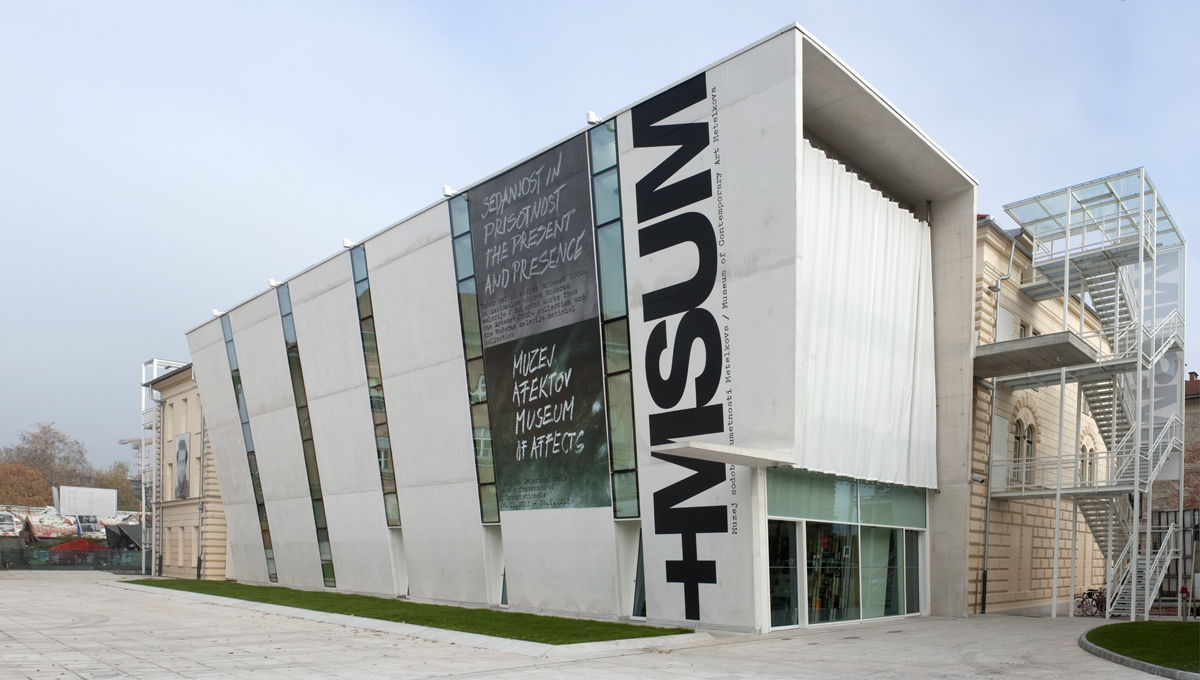Friday ALUO1 at the +MSUM
Three events:
Tuesday, 22 October 2013 at 5 p.m.
Jože Barši: Presentation of Jacques Rancière’s text “The Method of Equality: An Answer to Some Questions”
Thursday, 24 October 2013 at 5 p.m.
Jože Barši: Presentation of Maurizio Lazzarato’s text “The Practice and Anti-dialectical Thought of an ‘Anartist’”
Saturday, 26 October 2013 at 5 p.m.
Chantal Mouffe: “Radical politics as counter-hegemonic intervention: the role of cultural practices”, a lecture
A presentation of Jacques Rancière’s text “The Method of Equality: An Answer to Some Questions” published in the book Jacques Rancière: History, Politics, Aesthetics (edited by Gabriel Rockhill and Philip Watts). How to understand equality; the relationship between politics and aesthetics; the concept of a “distribution of the sensible”; and the principle of untimeliness, which allows impossible convergences of locations – these are the main themes of Rancière’s text. The sensible – or, taken to the next degree, passion – destabilizes, initiating change; politics stabilizes. The cycle of the sensible and politics is endless. According to Rancière, politics is above all a struggle for equality, and this “for all” is what connects it to the sensible.
Maurizio Lazzarato’s text “The Practice and Anti-dialectical Thought of an ‘Anartist’”, published in Deleuze and Contemporary Art (edited by Stephen Zepke and Simon O’Sullivan) is a critique of Rancière’s idea of the “distribution of the sensible”. Lazzarato introduces a third element between Rancière’s dialectical opposition of the notions of “play” and “work”, an element that is neither the one nor the other, nor a mediation of or between the two. This “intermediacy” or better, “both-ness”, is what enables the elimination of the dichotomy. Departing from Marcel Duchamp’s readymade, Lazzarato desacralizes/de-professionalizes art, separating it from both work and play. Duchamp’s idea of “doing nothing” thus falls in the interval between the focused activity of work and the passivity of fantasizing or the unfocused pleasure of play. Thus it is neither the one nor the other, or better, it is both the one and the other at the same time. And this can relate to the ideas of agonism, introduced by Chantal Mouffe.
In her writing, Chantal Mouffe deals with the concept of agonism. If I understand it correctly, this is – simply put – “affirmative contestation”. I find this concept extremely stimulating in that in enables the coexistence of differences by not instituting a single permanent “master” (be that the neoliberal model of society or, on a micro level, a dominator that wholly appropriates something…) This is an idea much needed in institutions like art schools which are about not imposing a single mode of producing the ideas and practices of art actions through dominance. The affirmative contestation of ideas is a contest that never ends with finality, and has no winners or losers.
Jože Barši (b. 1955) has degrees in architecture and sculpture; not surprisingly, his practice meanders across many fields: from the deconstruction of the sculptural object in the mid-1990s, to a shift to some sort of architectural explorations of space and their subsequent expansion into installations, the use value of an artwork, and its social and relational value, to more conceptual practices, such as walking, sound, conversations, readings, and registers of knowledge. More recently Barši has focused most of his interest on forgotten or ignored texts of political philosophy and art. The copies of texts (whole books, chapters, or shorter texts) appear not only as an art form but as content that Barši analyses and then presents to the public.
In 1997, Barši represented Slovenia at the Venice Biennale. Two years later his functional sculpture Public Toilet was included in the first public presentation of the international Arteast 2000+ collection at Metelkova; here the building actually served its purpose. Barši had several other presentations of his work under the auspices of Moderna galerija: at the U3 Triennials of Contemporary Slovenian Art in 1997 and 2010 and at group shows 7 Sins: Ljubljana–Moscow (2004/2005) and Oscillations: 30 Days of Sound (Mala galerija, 2005), a solo exhibition House (Mala galerija, 1999), and in 2013 a retrospective at the Museum of Contemporary Art Metelkova (+MSUM). In addition to this, Barši’s work has been featured at the Istanbul Biennial (1995), the 24th International Biennial of Graphic Arts in Ljubljana (2001), as part of the project Unusual Pairs in Celje (2001), the exhibitions Walking (2001), and Conversations (2006) at the Škuc Gallery, and at numerous other international and Slovenian exhibitions, artist-in-residence programs, workshops, and conferences. He has won the Golden Bird award for visual inter-media art and works as a full-time professor at the Academy of Fine Arts and Design in Ljubljana.
1“Friday ALUO” is a formally and topically different night school organized by the ALUO – the Academy of Fine Arts and Design – in Ljubljana each spring term.


